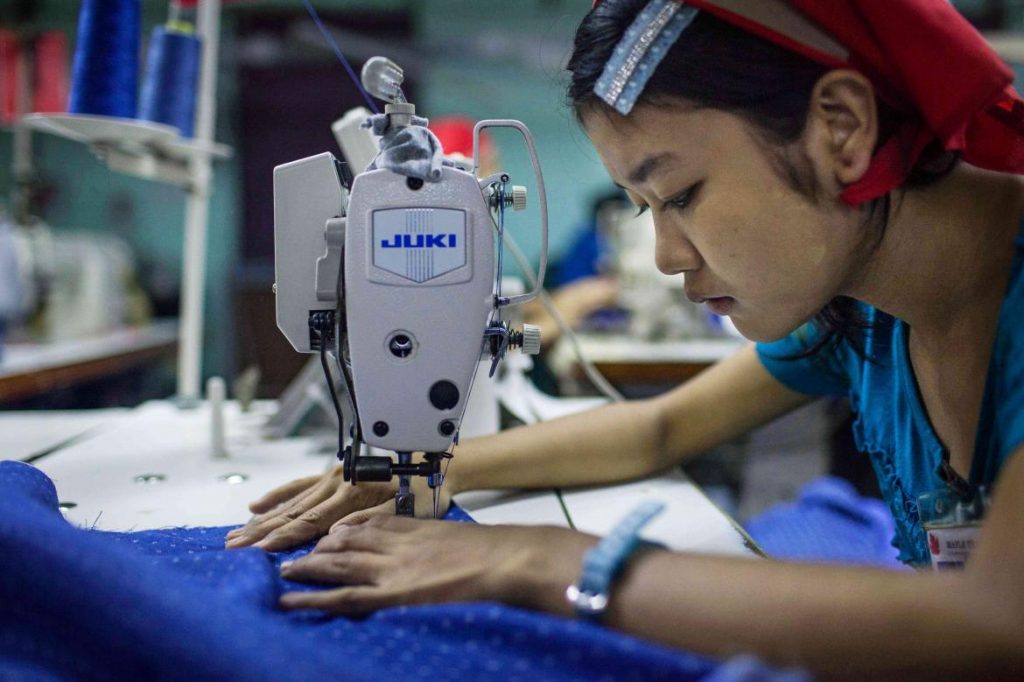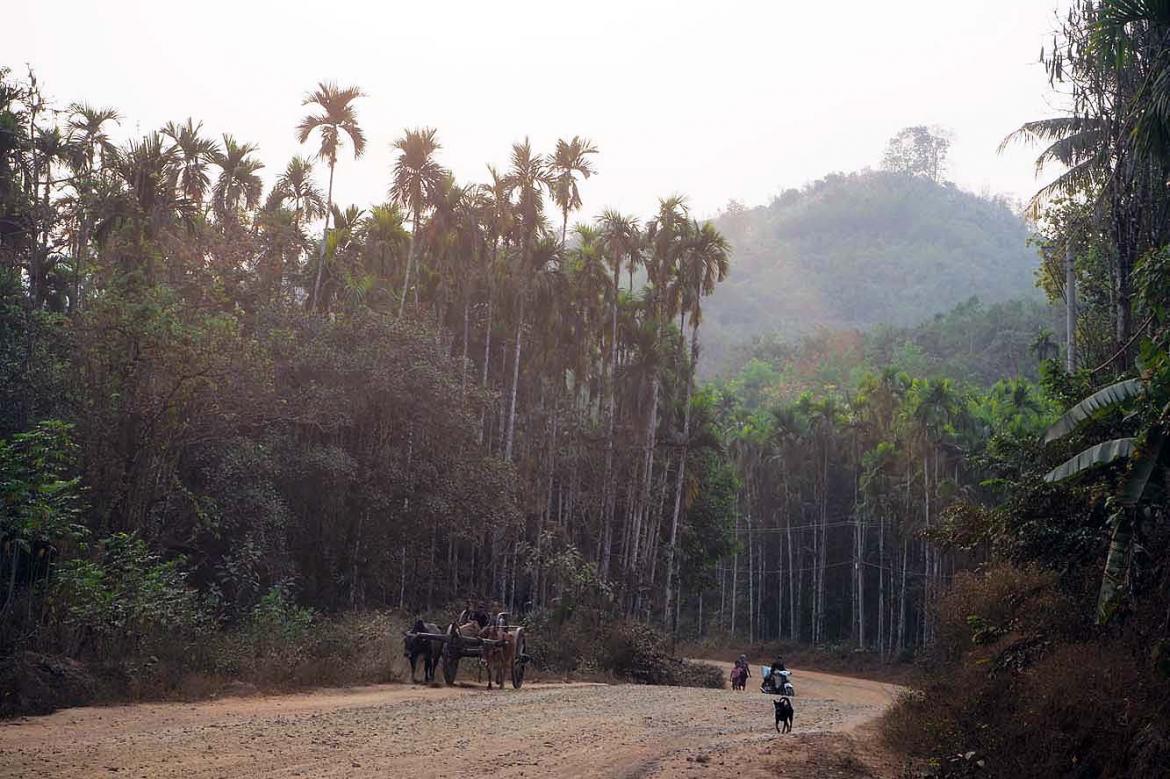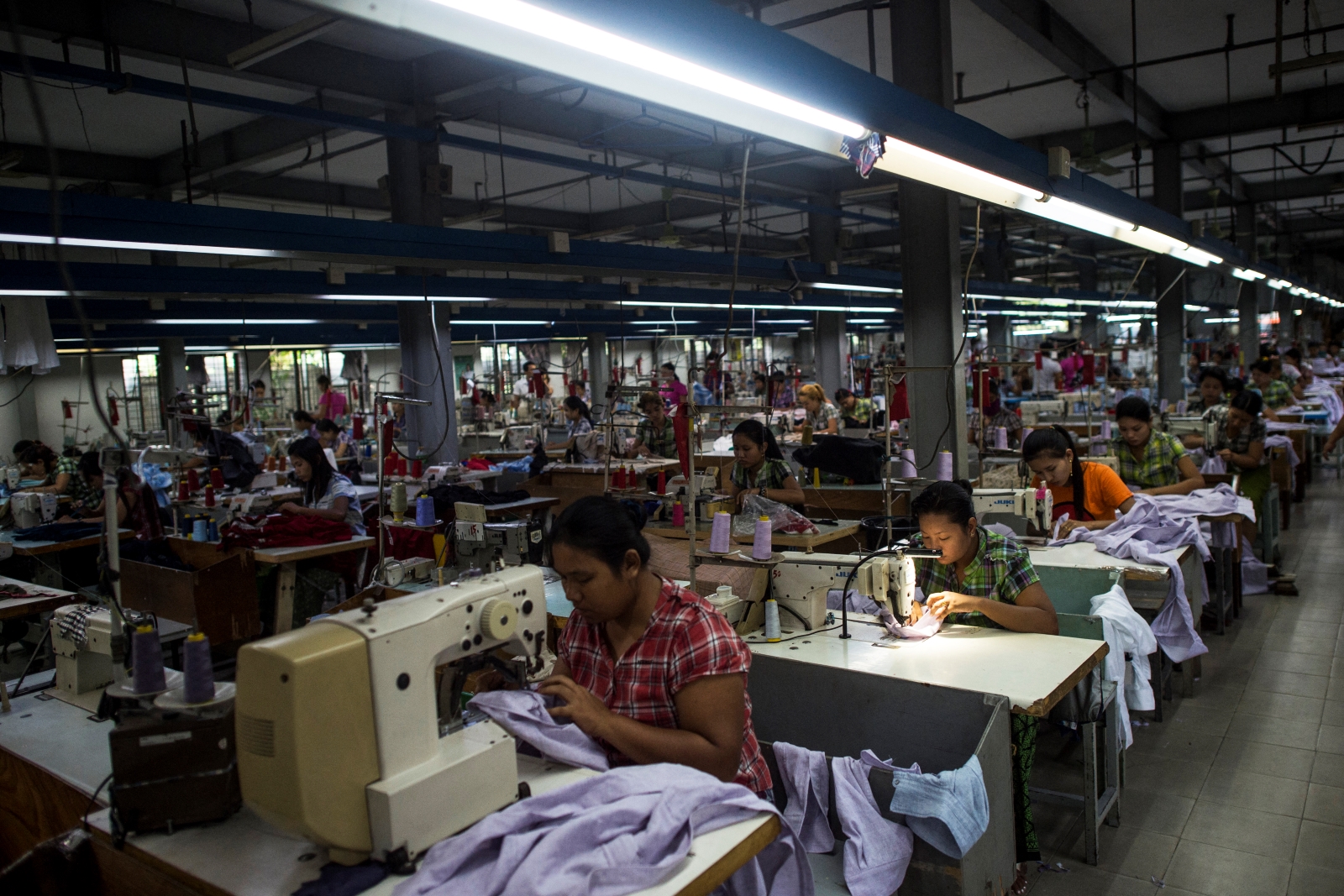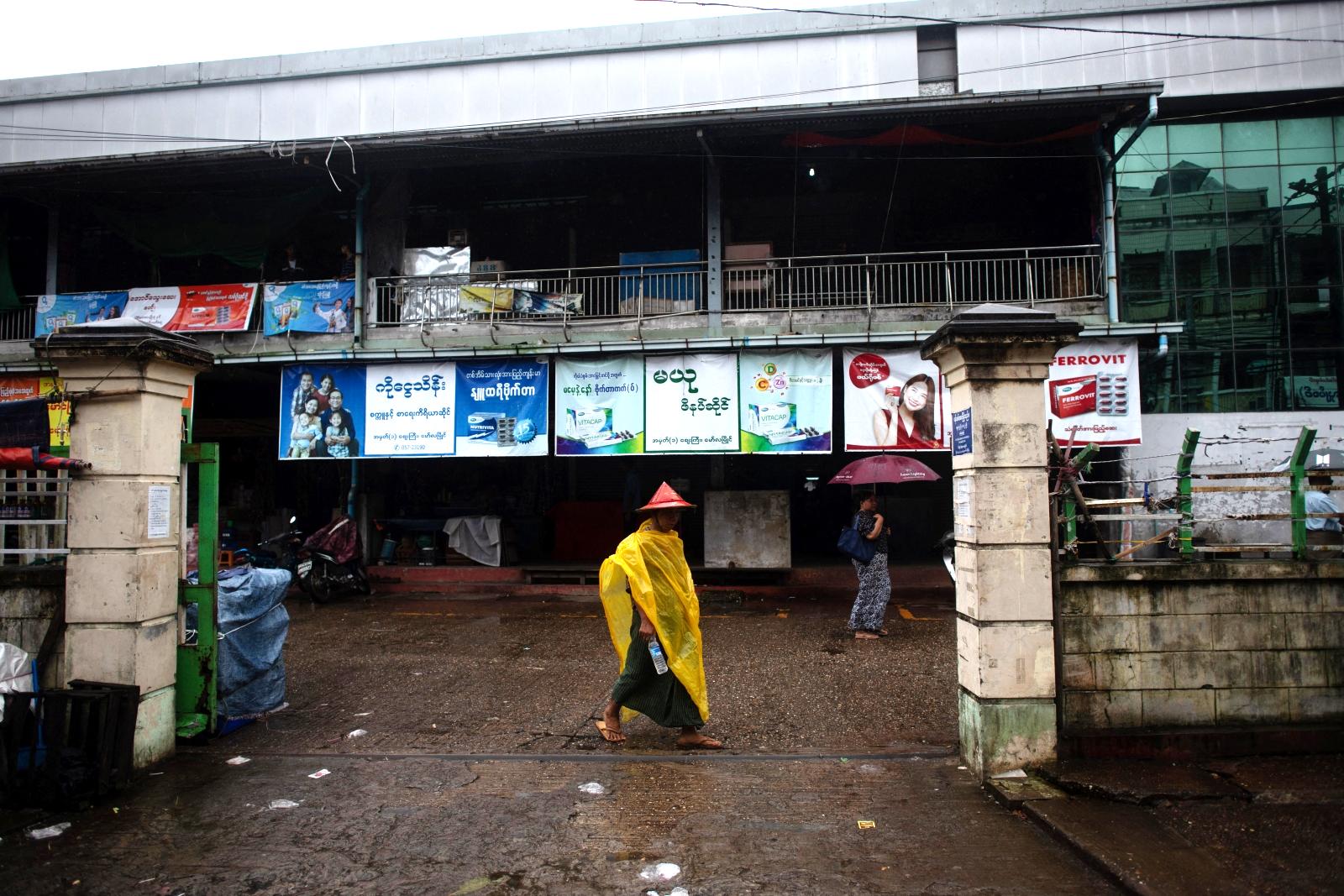A government announcement ordering factories to close for COVID-19 prevention inspections was so badly worded it was misunderstood by many employers.
By KYAW YE LYNN | FRONTIER
Factories and other workplaces are gradually resuming operations after being ordered to close for COVID-19 health and safety inspections. Although many factory owners will be glad to be restarting their businesses after a lengthy holiday period, the manner in which the inspections were announced on April 19 caused widespread confusion.
The last-minute announcement on the final day of the 10-day Thingyan holiday was so badly worded that it was completely misunderstood by many employers, said a member of the committee that manages the Shwe Lin Ban industrial zone in Yangon Region’s Hlaing Tharyar Township.
“Four or five factories opened on April 20 because they thought [the announcement] was a green light to resume operations,” said the committee member, who requested anonymity.
“Our committee did not receive clear instructions regarding the announcement,” he said. “We didn’t know whether we should advise factories to remain closed or resume operations on April 20.”
Support independent journalism in Myanmar. Sign up to be a Frontier member.
The situation resulted in State Counsellor Daw Aung San Suu Kyi apologising for the confusion and chaos caused by announcement during a live video conference on April 22 with an official from the Ministry of Labour, Industry and Population, a businessperson and a representative of the labour movement.
The Shwe Lin Ban committee member asked why the announcement was made on the last day of the holiday when the government had abundant time to consider the situation during the Thingyan holiday.
The April 19 announcement by the Ministry of Labour, Immigration and Population said factories, workshops and “departments” would be inspected for compliance with health guidelines to prevent the spread of COVID-19 to determine if they would be permitted to resume operations.
The inspections would be conducted between April 20 and 30 by teams of officials from the ministry, the Ministry of Health and Sports and “experts”. The announcement said priority would be given to pharmaceuticals factories; food production factories; factories, workshops and departments that are “ready to resume operations in line with health instructions”; factories and workshops with more than 1,000 workers; and “other factories, workshops and departments”. Workplaces could re-open with the approval of the teams, it said. The reference to “other factories, workshops and departments” was not explained, and neither were the “health instructions” that some workplaces were apparently ready to begin complying with.
Annoying, but preferable to lockdown
A Yangon-based business consultant, whose firm advises foreign investors, said the announcement had taken his clients by surprise. Announcing on a Sunday a decision that was taking effect the next day “did not give much time to prepare, and created significant confusion”, the consultant said.
Additionally, the order lacked detail on how employers could prepare for the inspections and there was only vague language on which businesses would be prioritised.
“Gradually this is being sorted out, but it could have been clearer from the beginning,” he said. Although many of the priority factories had been inspected and permitted to re-open, “clearly the goal of inspecting all Myanmar factories by 30 April is impossible, and the inspections will carry on into next week.”
However, the consultant said the inspections decision was “much more preferable” to a broad lockdown like in the Philippines and Malaysia, where all factories were closed.
“Something like that would be absolutely devastating in Myanmar, whereas this situation with these MOLIP inspections is annoying and damaging but not catastrophic.”
A staff member who answered the phone when Frontier called the office of MOLIP permanent secretary U Myo Aung on April 23 said more joint teams had been created to accelerate the inspections.
She said about 300 factories, mainly in Yangon, had been inspected as of noon on April 23 and most had been allowed to resume operations.
They include the factory in Hmawbi Township at which the Loi Hein Co Ltd produces Alpine drinking water, which had closed as a result of the order but was later inspected by one of the teams on April 22.
Daw Moe Sandar Myint, founder of the Federation of Garment Workers, said confusion over the MOLIP announcement had resulted in “about 80” factories resuming operations in Yangon’s Hlaing Tharyar Township on April 20. “Some factories threatened to sack workers who did not return to work that day,” she told Frontier on April 23.
The federation was preparing a list of factories that resumed operations before being inspected and it would be sent to the government to take action against owners, she said.
Govt dips into social security fund, again
In a related development, the Social Security Board said on April 28 that the President’s Office had approved a plan to support eligible workers affected by the workplace closures.
More than 1.5 million workers registered with the SSB were entitled to receive this support, MOLIP’s Myo Aung told journalists on April 20.
He did not say how much support eligible workers would receive.
SSB director general U Maung Maung Aye said the President’s Office had approved a draft plan and the government would issue a press release later today.
The draft plan was not based on the Social Security Law but on a directive issued by the President’s Office through the ministry, he said in earlier interview.
Section 100 of the law permitted changes to benefit arrangements with the approval of cabinet, he added.
The draft plan provides for workers to receive the basic daily minimum wage of K4,800 for each day they wait to return to work.
It will be the second major disbursal of cash from the fund in recent months, after the government ordered the SSB in March to provide K50 billion from workers’ contributions to the initial K100 billion fund established to provide low-interest loans to businesses affected by COVID-19.
Maung Maung Aye said the K50 billion was a kind of a loan that would eventually be repaid to the SSB.
In September 2018, Frontier reported that the SSB had accumulated more than K240 billion – in part because it was so inefficient – and the amount is likely to have increased since then.
Maung Maung Aye did not provide an updated figure, but said there was enough money to support workers.
“The SSB has enough funds to help workers during this difficult time,” he said.







